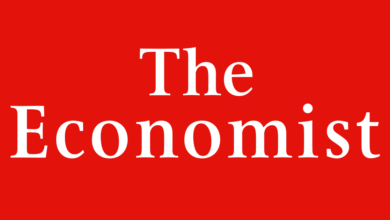Life And Careers In The Age Of Readiness

WHAT’S NEXT?
Skills, skills, skills.
Improve your skills. Add to your skills. Keep growing your skills. Polish your skills. Embellish your skills. Soft skills. Hard skills.
Skills, skills, skills.
Until very recently – no longer ago than the onset of the 21st century, if even that long ago – it was universally accepted that the way up the career ladder was to continuously elevate and broaden your skill set. And the way to build corporate teams was through skills.
Skills, skills, skills.
So off we all went – back for an MBA, registered for an executive certificate in one thing or another, seminars and webinars, in-house training sessions, team building retreats, lunch-n-learns, mentorships and coaching relationships, and anything else that was cooked up for us or by us. We got so wrapped up in our skills acquisition and development obsessions and, with it, our ability to cram more and more key words into our résumés, that most of us didn’t – and still don’t – see the dawning of a new age: The Age of Readiness.
Where and how long do skills stay relevant?
What skills matter? What types of skills matter?
There are and always have been two answers to that question. Soft skills – communication skills (all six), team skills, problem solving, creative thinking, and the like – generally are people-oriented, transferable, found in bundles, and last longer than most new versions of innovations (although they do morph along the way).
Hard skills – accounting, regression analysis, playing third base, vaccine development, computer science, and so on – generally are task-oriented, occupation-specific, stand alone, and are more subject to change, innovation, obsolescence, and replacement than soft skills.
The thing about this in 2025 is that the pace of change in the technical world has become so fast, that the old thinking that all technical learning becomes obsolete in two years is giving way to the reality that it’s more like a year, and in AI, six months,
Both types of skills have equal importance, but it’s the soft skills that are more long-lasting. However, a caveat is in order here. In today’s world, with the emergence of much of what is considered the developing and underdeveloped world (let’s skip developed and undeveloped countries for the moment), communications and cultural norms and practices are now more ephemeral, making traditionally constant skills more susceptible to premature relegation.
Readiness is more important than expertise.
Which brings us to the point. Carrying around and relying on old skill sets is to ignore reality and is already sinking into irrelevance, and that goes for both our hard and soft skills.
What will be more important as we move forward is not our current areas of expertise, but our readiness to develop new ones and to abandon the obsolete ones.
Time for another caveat. As an independent career coach and job market observer who’s been at it for 28 years, I can tell you that most hiring authorities have not come to this realization yet – or have, but they’re resisting it because it’s very uncomfortable and will force them into a wilderness experience as they must change their hiring criteria and standards. Just look at job requirements on most postings. They look like they were written 30 years ago. But what they must do is start to hire not based on current skill sets, but on readiness, willingness, and ability to adapt. There is no choice but to cast off safety in favor of fearlessness.
The forward-thinking job seeker
That makes things simple, actually. If we think about our future of work, we’ll stop thinking only about what our eyes can see and spend more time on what our minds can imagine. Twenty years ago, did you ever hear about deep learning, mRNA vaccines, or vertical farming?
Readiness is, indeed, more important than expertise.
That’s the Age of Readiness.



